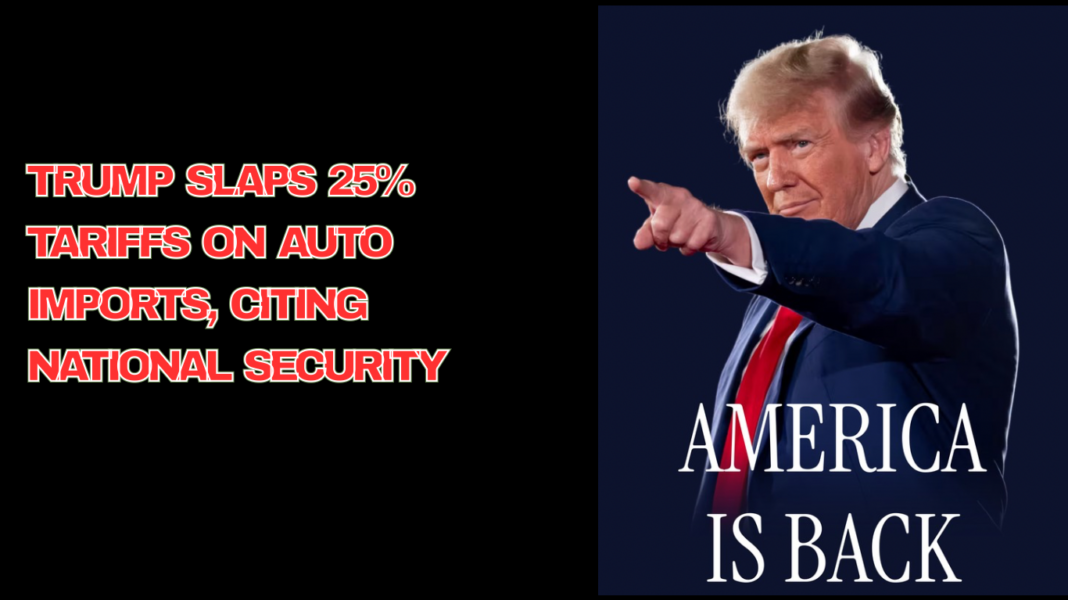In a bold move aimed at reviving American manufacturing, President Donald J. Trump has announced sweeping 25% tariffs on imported automobiles and select auto parts. The proclamation, grounded in the Cold War-era Section 232 of the 1962 Trade Expansion Act, is designed to counter what the administration describes as “unfair trade practices” that threaten both U.S. national security and the domestic auto industry.
The tariffs target a broad range of imported vehicles, from sedans to SUVs, as well as critical auto components like engines and electrical systems. The White House emphasizes that these measures will bolster domestic production, address supply chain vulnerabilities, and rebuild an industrial base essential for national defense.
Details on Tariffs and Exemptions
Under the new policy, imports from Canada and Mexico—key U.S. trade partners under the United States-Mexico-Canada Agreement (USMCA)—will be partially exempt. Tariffs will apply only to the non-U.S. content of vehicles and parts, provided importers meet specific regional value requirements. This exemption reflects Trump’s renegotiation of the North American trade pact but highlights ongoing concerns that existing agreements have fallen short of protecting U.S. interests.
The “Why” Behind the Tariffs
The administration argues that these tariffs are a necessary response to lessons learned during the COVID-19 pandemic, which exposed glaring weaknesses in global supply chains. Over the years, the decline in domestic manufacturing has further exacerbated these issues:
- Only 25% of car content in vehicles sold in the U.S. is domestically produced, a sharp drop from 97% in 1985.
- The U.S. auto parts trade deficit soared to $93.5 billion in 2024, while auto parts manufacturing jobs have plummeted 34% since 2000.
- American automakers accounted for just 16% of global R&D spending last year, falling far behind European competitors, who dominated with 53%.
“America’s manufacturing capabilities have been hollowed out while foreign industries thrive on subsidies,” states the White House. The tariffs are touted as a step toward reshoring jobs and revitalizing production.
Economic Debate and Studies
Critics argue the tariffs could inflate costs for consumers, but the administration disagrees. Studies cited by the White House claim that earlier tariffs imposed during Trump’s first term did not lead to significant price hikes or sustained inflation. Former Treasury Secretary Janet Yellen and reports from the Economic Policy Institute and Atlantic Council back up this assertion, suggesting the tariffs could incentivize purchasing American-made vehicles without destabilizing prices.
What’s Next?
The proclamation tasks the Commerce Department and Customs and Border Protection with implementing the new rules and considering extensions to other auto parts if needed. While the announcement doesn’t address potential international fallout, it’s expected to provoke reactions from trade partners and industry groups.
“This isn’t just about cars,” said President Trump during the announcement. “It’s about protecting America’s future. We won’t let other nations drain our jobs or compromise our security.”
The new tariffs take effect immediately, marking a significant escalation in Trump’s push for economic nationalism and industrial renewal.
A global media for the latest news, entertainment, music fashion, and more.




